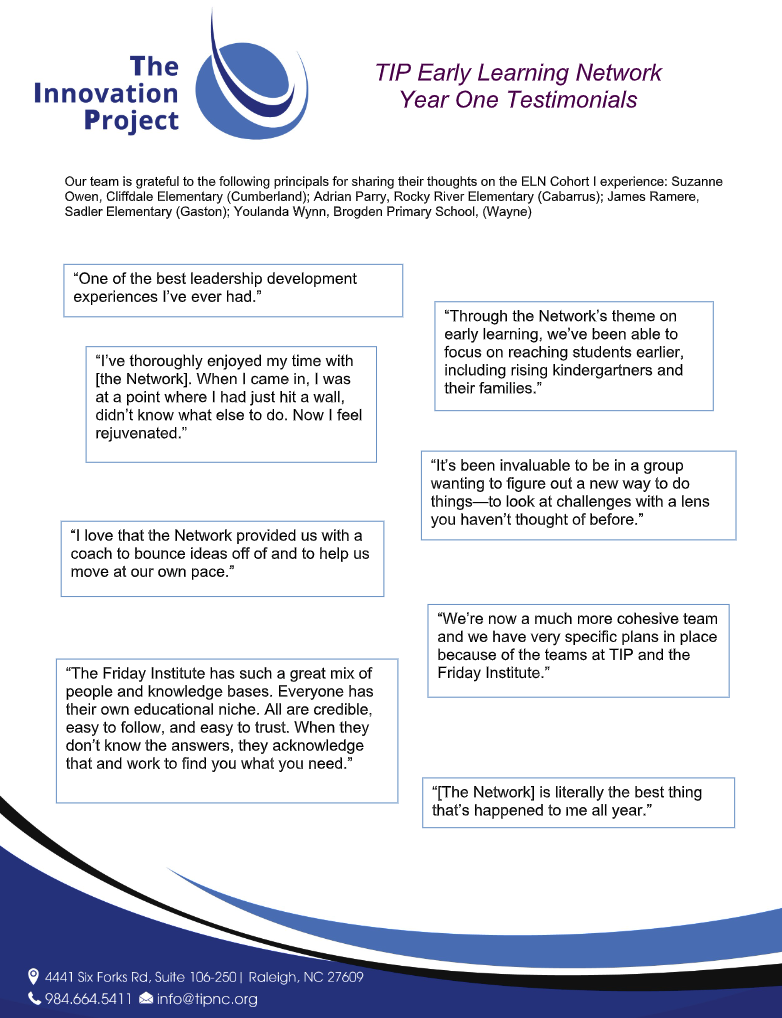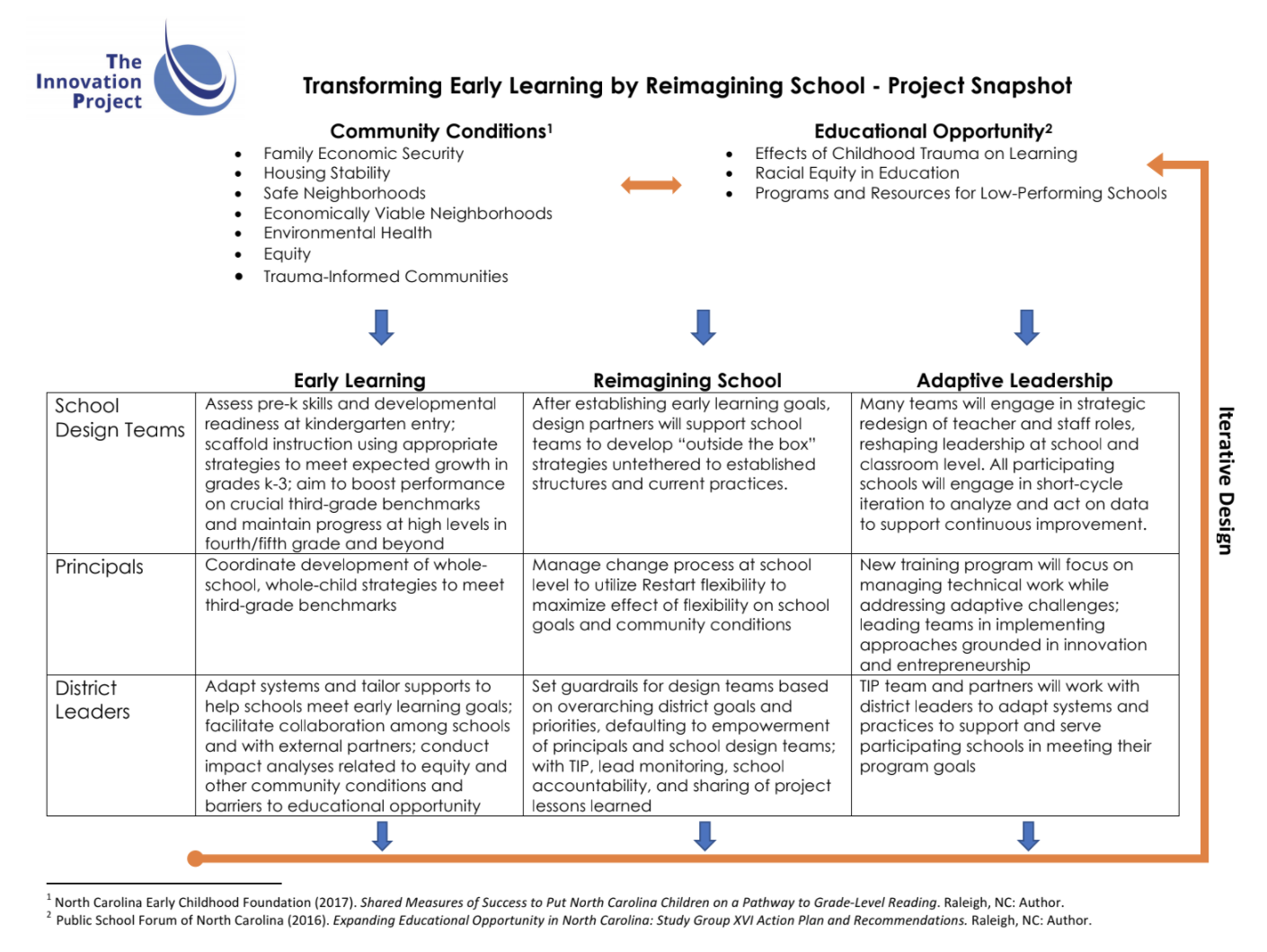Leadership Development | Human-Centered Design | Growth Mindset | Consulting | Facilitator
Early Learning Network
I had the pleasure of helping to design and facilitate the first year of the Early Learning Network. Two highlights of this project for me were leading the two teams (school leadership and educator) through the design thinking process and researching and creating the "Characteristics of an Innovative Leadership Catalyst for Accelerating Change" framework (shown below). These two approaches helped the teams explore new personas/mindsets and put empathy and action at the center to gather new information to reimagine what schools can be and accelerate change. You can learn more about the project below.
With a generous three-year grant from the W. K. Kellogg Foundation, The Innovation Project (TIP) and its partners have developed and supported an inter-district network focused on redesigning learning environments better to address the early learning needs of vulnerable children. The Early Learning Network (ELN) engaged school design teams and principals from 36 schools in 12 North Carolina districts in its first two years. The ELN immersed participating schools and districts in a cohort-based program defined by three interrelated activities that together enable transformative results:
Transformation through School Design. School design teams participated in an intensive process to define learner-centered goals and strategies to improve early learning outcomes. Schools did not implement a specific model but instead engaged in a common process to design for transformation of the student experience in grades Pre-K-3.
Coaching for Entrepreneurial School Leadership. TIP recruited a cadre of exceptional coaches with proven records of school turnaround leadership and education innovation. These coaches supported principals in extending their skill sets to meet the challenges of leading through innovation in struggling schools and to capitalize on the opportunities presented by the ELN.
Innovative District Supports. TIP worked closely with superintendents and district leaders in innovation, curriculum and instruction, student support, finance, human resources, and other areas to help them structure district policies and practices and better empower school leaders and school design teams to engage fully in the ELN’s design process.
Here are both team’s goals:
Leadership Goals
Mindset: Help school leaders bring an innovative mindset to help re-imagine every aspect of a student’s learning experience
Early Learning: Coordinate development of whole school, whole-child strategies to meet third-grade benchmarks
Reimagining School: Manage change process at school level to utilize school flexibility to maximize effectiveness on school goals and community conditions
Adaptive Leadership: Focus on managing technical work while addressing adaptive challenges; leading teams in implementing approaches grounded in innovation and entrepreneurship
School Team Goals
Early Learning: Develop school-specific objectives; Establish rigorous plans to measure impact and progress; Integrate early learning and equity strategies through the design process
Reimagining School: Build an innovative mindset to help re-imagine every aspect of a student’s learning experience. After establishing early learning goals, design partners will support school teams to develop “outside the box” strategies untethered to established structures and current practices.
Adaptive Leadership: Many teams will engage in strategic redesign of teacher and staff roles and other changes to reshape leadership at school and classroom level.
Design Process/Cycle: Engage in short-cycle iteration to analyze and act on data to support continuous improvement; all will share plans, implementation lessons, and results through the network.







